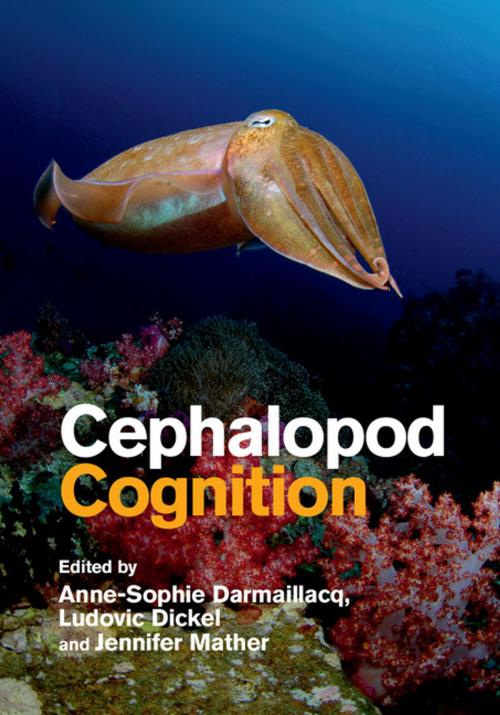Cephalopod Cognition
Nonfiction, Health & Well Being, Medical, Veterinary Medicine, Science & Nature, Mathematics, Science| Author: | ISBN: | 9781139985024 | |
| Publisher: | Cambridge University Press | Publication: | July 10, 2014 |
| Imprint: | Cambridge University Press | Language: | English |
| Author: | |
| ISBN: | 9781139985024 |
| Publisher: | Cambridge University Press |
| Publication: | July 10, 2014 |
| Imprint: | Cambridge University Press |
| Language: | English |
Cephalopods are generally regarded as the most intelligent group among the invertebrates. Despite their popularity, relatively little is known about the range and function of their cognitive abilities. This book fills that gap, accentuating the varied and fascinating aspects of cognition across the group. Starting with the brain, learning and memory, Part I looks at early learning, memory acquisition and cognitive development in modern cephalopods. An analysis of the chambered nautilus, a living fossil, is included, providing insight into the evolution of behavioural complexity. Part II surveys environmental responses, especially within the active and learning-dependent coleoids. The ever-intriguing camouflage abilities of octopus and cuttlefish are highlighted, alongside bioluminescence, navigation and other aspects of visual and cognitive competence. Covering the range of cognitive function, this text underscores the importance of the cephalopods within the field of comparative cognition generally. It will be highly valuable for researchers, graduates and senior undergraduate students.
Cephalopods are generally regarded as the most intelligent group among the invertebrates. Despite their popularity, relatively little is known about the range and function of their cognitive abilities. This book fills that gap, accentuating the varied and fascinating aspects of cognition across the group. Starting with the brain, learning and memory, Part I looks at early learning, memory acquisition and cognitive development in modern cephalopods. An analysis of the chambered nautilus, a living fossil, is included, providing insight into the evolution of behavioural complexity. Part II surveys environmental responses, especially within the active and learning-dependent coleoids. The ever-intriguing camouflage abilities of octopus and cuttlefish are highlighted, alongside bioluminescence, navigation and other aspects of visual and cognitive competence. Covering the range of cognitive function, this text underscores the importance of the cephalopods within the field of comparative cognition generally. It will be highly valuable for researchers, graduates and senior undergraduate students.















